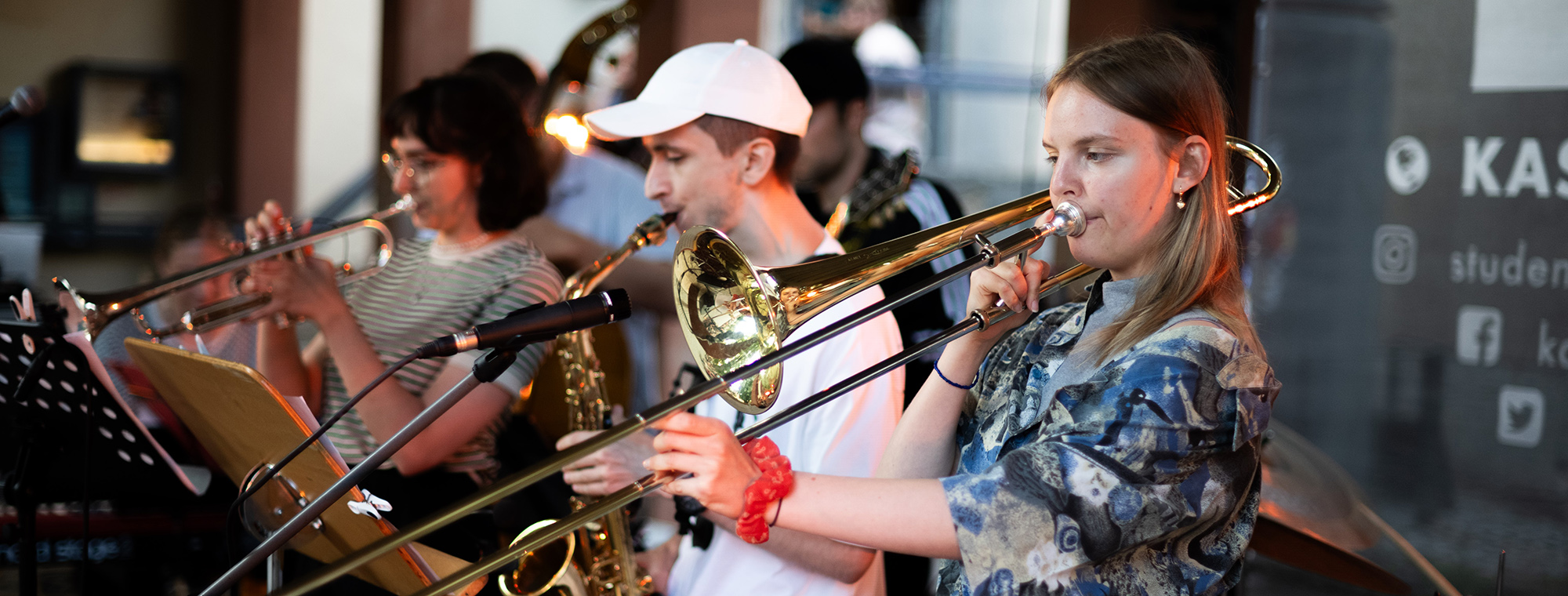When the Department of New Music and Jazz was established, it marked the creation of a progressive department of contemporary music. The department does not just focus on new music, popular music, and jazz: it also looks at the crossovers between these musical disciplines. This merger creates space for new ‘hybrid’ forms of composition and improvisation.
Students have greater freedom of choice within their course and can draw inspiration from various sources. This openness is the basis of the creative exchange of the internationally renowned faculty with the students of the jazz department. It is possible to study jazz in two different bachelor programs (instrumental and pedagogical) as well as in the master program with the following instruments: voice, saxophon, clarinet, flute, trumpet, trombone, electric guitar, piano, electric bass, double bass and drumset.
All students have access to well-equipped practice and rehearsal rooms. Students and teachers are given the opportunity to produce a professional recording of their music in the LISZT University's excellent recording studio on a regular basis.
